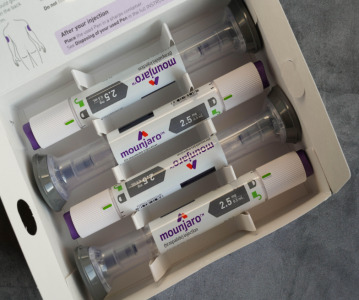NICE Recommends Xarelto (Rivaroxaban) as an Effective Treatment Option for Reducing Risk of Secondary Events in ACS

NICE has issued its Final Appraisal Determination (FAD) recommending Xarelto 2.5 mg twice daily as an effective treatment option for preventing secondary events — such as death, heart attack or stroke — following acute coronary syndrome (ACS) in patients with elevated cardiac biomarkers, without prior stroke or transient ischaemic attack (TIA). The FAD is the final phase in a multi-step review process by NICE and recognises the improved patient outcomes using Xarelto as a treatment option on top of dual antiplatelet therapy; publication of guidance is expected to follow in Q1 2015.
“Despite treatment advances in recent years, including newer antiplatelet agents, patients with ACS remain at risk, evidenced by the high incidence of cardiovascular death, myocardial infarction and stroke in patients following an ACS event,” commented Professor Carlo di Mario, Professor of Cardiology, Imperial College London. “The addition of the anticoagulant Xarelto to standard antiplatelet therapy has been shown to reduce risk in this patient group, marking a significant advance in the management of ACS.”
The FAD is based on a thorough review of the clinical effectiveness of 2.5 mg Xarelto twice daily in the randomised controlled landmark ATLAS ACS 2 TIMI 51 trial in which Xarelto has shown significant advantages in the secondary prevention of ACS in patients with elevated cardiac biomarkers without prior stroke or TIA.5 The FAD also recommends Xarelto as a cost-effective treatment option.
Among patients with elevated cardiac biomarkers and no prior stroke or TIA, Xarelto 2.5 mg twice daily on top of dual antiplatelet therapy demonstrated statistically significant reductions in the primary outcome of death from cardiovascular causes, myocardial infarction or stroke in patients with a recent ACS compared with a placebo ((20%) ARR 2.1; HR 0.80(0.68-0.94), P = 0.007; NNT 48) as well as cardiovascular death by 45% RRR (ARR 2.0; HR 0.55 (0.41-0.74), P < 0.001; NNT=50) and all-cause death by 42% RRR (ARR 2.1; HR 0.58 (0.44-0.77), P < 0.001; NNT=49). Whilst there was an increase in bleeding rates with Xarelto, there was no difference in fatal bleeds or fatal intracranial haemorrhage.
The dual pathway treatment strategy tested in ATLAS ACS 2 TIMI 51 recognises the importance of thrombin generation (as well as the role of antiplatelets) following ACS events, and confirmed the clinical benefits that the anticoagulant Xarelto 2.5mg twice daily can deliver on top of dual antiplatelet therapy.
”We’re delighted with this FAD as it expands the clinical utility of Xarelto across different settings and patient populations, providing even more patients with access and improved outcomes,” said Dr Luis Felipe Graterol, Medical Director, Bayer HealthCare UK. “Xarelto is approved to prevent and treat more thromboembolic conditions than any other novel oral anticoagulant, and is the leader in the market place both in the UK and worldwide. We remain committed to our growing clinical trial and lifecycle management programme to extend use into further areas of unmet need.”
Related News
-
News The next 15 drugs up for negotiation with Medicare include several blockbusters
By now, everyone is quite familiar with the drug price negotiations taking place between drug companies and the Centres for Medicare & Medicaid Services (CMS) in the USA as part of measures being taken to reduce the cost of drugs for patients, to make ... -
News PSCI Welcomes Delpharm, Samsung Biologics, and Suven as First Supplier Partners
The pharmaceutical industry continues to evolve with an increasing focus on responsible sourcing, sustainability, and collaboration across the supply chain. Under a new model to recognise suppliers within the pharmaceutical and healthcare industry that... -
News Drug prices agreed upon as part of the US Inflation Reduction Act
The Inflation Reduction Act brought into constitution by the Biden administation in 2022, which proposed a drug price negotiation between the government and pharmaceutical companies, has reached it's first agreement. -
News Eisai Alzheimer’s drug authorised in UK but still faces obstacles
In partnership with BioArctic AB, pharmaceutical company Eisai has been granted Marketing Authorisation by the Medicines and Healthcare products Regulatory Agency (MHRA) for its Alzheimer’s disease drug product Leqembi. -
News Eli Lilly's weight loss drugs removed from the FDA's shortage list
The US FDA have recently updated their drug shortage list. The recently released list shows that all dosage forms of Eli Lilly's weight-loss drug Zepbound and their diabetes drug Mounjaro are now available. -
News Global advancements in the diagnosis and treatment of rare diseases: Rare Disease Day 2024
Rare Diseases Day is celebrated on the 29th February 2024 and represents the plight of rare disease patients to gain diagnosis and access to suitable treatment. -
News Pharmaceutical industry supports COP28 health stance in joint statement
As COP28 takes place over this week in Dubai, UAE, several bodies in the pharmaceutical and health industries have come together to announce support of key movements in sustainability in the sector, and to recognise sustainability as a health issue.&nb... -
News Biden backs Cold-War measures to shore-up medical supply chains
In a recent strategy to combat rising inflation and the cost of living crisis, President Joe Biden has invoked a Cold War-era act to increase investment in a selection of medicines and supplies.
Recently Visited
Position your company at the heart of the global Pharma industry with a CPHI Online membership
-
Your products and solutions visible to thousands of visitors within the largest Pharma marketplace
-
Generate high-quality, engaged leads for your business, all year round
-
Promote your business as the industry’s thought-leader by hosting your reports, brochures and videos within your profile
-
Your company’s profile boosted at all participating CPHI events
-
An easy-to-use platform with a detailed dashboard showing your leads and performance



.png)



